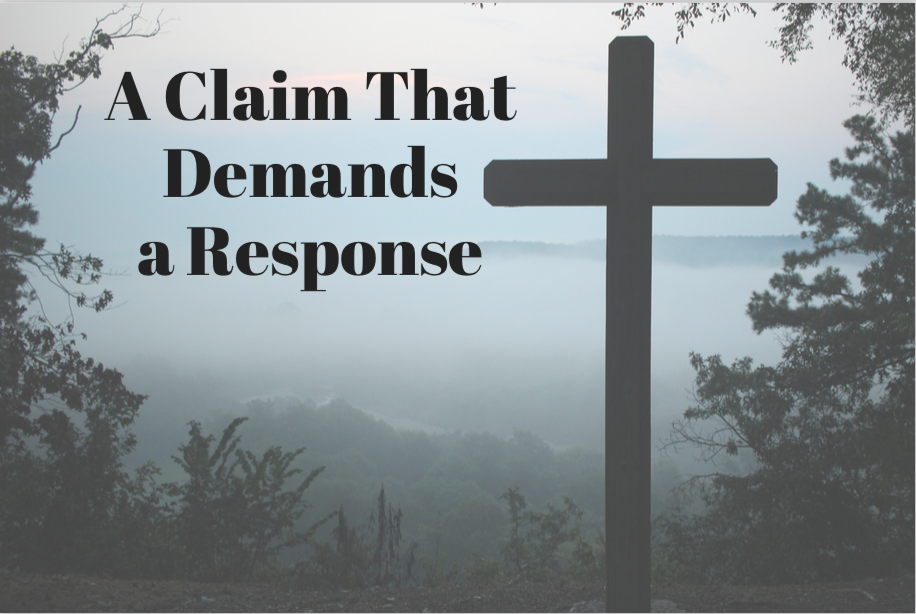Because everyone loves a good story
A Claim That Demands a Response

“…The whole story of the world—and of how we fit into it—is most clearly understood through a careful, direct look at the story of Jesus.” [1]
No matter who you are or what beliefs you hold, you must feel that this is a bold statement. To some, it seems too brash, too narrow, too conveniently Christocentric. To others, it is a bedrock truth, although it may have become so through a long and difficult struggle. But to skeptics and believers alike, this statement is bold and sweeping, leaving no room for exception or addendum. Life—my life and your life—makes the most sense when we view it in light of Jesus’ life.
This is the premise of Timothy Keller’s book, King’s Cross. If I’d started with the title of the book, you may have thought it was about the London railway system. And as interesting as that book would be (so long as it included Platform 9 ¾), it probably wouldn’t have been penned by Tim Keller, a Presbyterian pastor in Manhattan. Instead, King’s Cross is about those two words as they relate to the life and death of Jesus in the Gospel of Mark. “Mark’s account of Jesus’ life is presented to us in two symmetrical acts: his identity as King over all things…, and his purpose in dying on the cross….” [2]
The King and the cross. These two facets of Jesus’ life are not peripheral, nor can you be neutral about them. The Gospels describe Jesus as King—not just King of the Jews but King of Kings and Lord of Lords. If this is true, then this King would deserve your allegiance and your obedience. The Gospels also describe Jesus’ cross—not an unfortunate end to a benevolent life but the foreordained, willing slaughter of God Himself. But even more importantly, the cross is shown to be not the end but the beginning. The Gospels show Christ resurrected in power, returning to bring hope and healing both then and now.
If this is true, then this cross has the power to change your life forever.
So what are we supposed to do with these claims from the book of Mark? How do the King and the cross relate to you and me? Keller answers this way: “Mark wants us to see that the coming of Jesus calls for decisive action. Jesus is seen as a man of action, moving quickly and decisively from even to event. There is relatively little of Jesus’ teaching in the Gospel of Mark—mainly, we see Jesus doing. Therefore we can’t remain neutral; we need to respond actively.” [3] What are we supposed to do with the King and the cross? In a word: respond.
In his book Mere Christianity, C.S. Lewis explains the three possible responses to Christ: condemn Him as a liar, pity Him as a lunatic, or worship Him as Lord. In his short but excellent essay, “What Are We to Make of Jesus Christ,” he expands on this same idea, saying, “We may note in passing that [Jesus] was never regarded as a mere moral teacher. He did not produce that effect on any of the people who actually met him. He produced mainly three effects—Hatred—Terror—Adoration. There was no trace of people expressing mild approval.” [4]
To see the life of Jesus accurately is to realize that you must respond. You cannot stay neutral; He did not intend for that to be an option. You may reject Him. You may fear Him. But for those who have been given the grace and boldness to respond in worship, the King and the cross will transform this life and the next. When we begin to experience that, we will see how beautifully his life makes sense of ours.” [5]
Sources:
[1] Timothy Keller, King’s Cross (New York: Penguin Group, 2011), x.
[2] Ibid. xiv
[3] Ibid. xiv
[4] C.S. Lewis, “What Are We to Make of Jesus Christ” from God in the Dock http://www.christasus.com/letters/cslwhatarewetomakeofjesuschrist.htm
[5] Timothy Keller, King’s Cross (New York: Penguin Group, 2011), x.

Seeing Jesus for who he is (our savior and redeemer) is essential to understanding the Gospel, your life, and the world around you. Great post!!